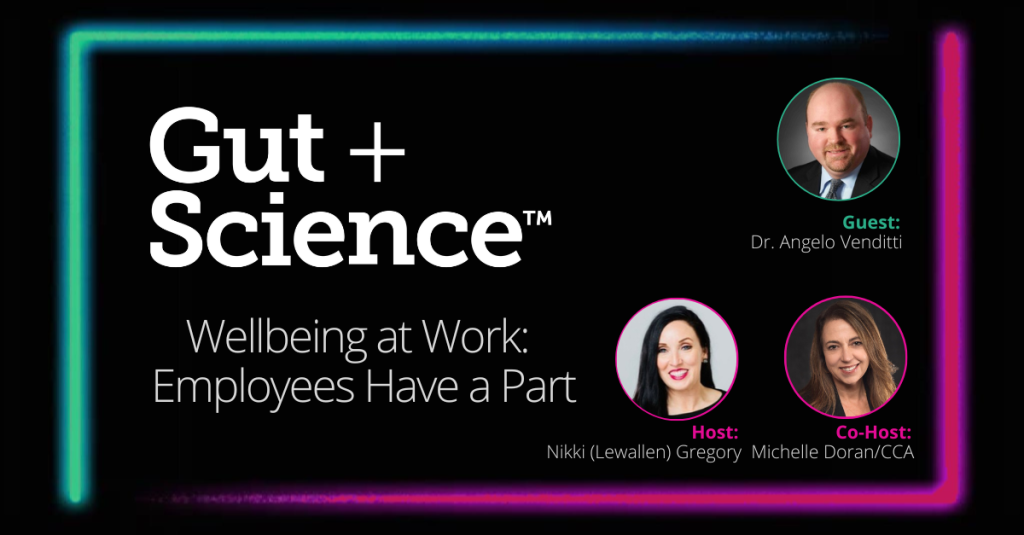“Take accountability, make great suggestions, and be part of the solution.”
That’s Dr. Angelo Venditti’s approach to supporting the well-being of his team members. As Chief Nurse Executive, Chief Patient Experience Officer, and EVP for Patient Care Services for Temple Health, Angelo is passionate about empowering people to play a key role in the quality of their employee experience.
Angelo and Michelle Doran with CCA, discuss how to provide your teams with the tools and services they need so they can take ownership of their workplace experience. Learn about coaching and encouraging people in a way that shows while challenges may exist in their professional journeys, they aren’t insurmountable.
Truth You Can Act On
1. Encourage Employees to Take Ownership
It’s really about empowering employees to bring suggestions and really own what they’re looking for in terms of a work environment and not relying on leaders to come up with all the solutions. I had a transformational moment when I was attending a magnet conference in 2018, and I had the opportunity to hear Cy Wakeman speak. And Cy talked a lot about ditching the drama, and it made me think differently. Ever since then, I really have changed the way that I view leadership and really focus on empowering team members to take accountability for themselves. And I see that through the same lens with regard to wellness. Take accountability, empower yourself, make great suggestions, and be part of the solution.
2. Educate Your People on Your Offerings
EAPs are interesting because I think many people think of EAPs when they’re in trouble. They’ve got a disciplinary action at work, and they’re asked to go to EAP. Or they’re maybe struggling with the death of a family member, and they have to go to an EAP. But when you really look at these programs, it’s so much more than that. It’s legal assistance when you’re trying to adopt a child. It’s processing your next best financial move and how to set yourself up for retirement. Getting people to understand the full depth and breadth of EAP programs, from an education standpoint, is really the hill we have to climb.
3. Listening Is Key
For me, it’s about listening, hearing what people have to say, and helping them work through their own ideas about how they’re going to achieve wellness or how they’re going to reach a personal or professional milestone. It’s maybe providing some guidance and advice along the way about what you have seen work or what doesn’t work, and then oftentimes, it’s getting out of the way and being the cheerleader while they’re heading toward the goal. You can put this in many lights, whether it’s somebody looking to achieve a degree that they thought they couldn’t get, or making time to exercise in the morning, it could be an array of things, but I really think it’s about coaching and encouraging and making people understand that maybe the barriers they see are there, but not insurmountable.
4. Tie Back to Passion
Do whatever you have to preserve the passion that got you into leadership. Maintain that hunger for what you’re doing and really keep it close to you. I think it’s the only way we’re successful, especially in these trying times. During those frustrating moments where you’re like, ‘I should go do something else,’ you have to remember why you got into this field. And I think the only way you can effectively help others is to help yourself. And so reminding yourself consistently why you are doing what you’re doing every day helps you be a better leader and take care of your people better.
Book Recommendation:
- Black Like Me by John Howard Griffin
Listen to the full episode: Episode 178: Well-being at Work: Employees Have a Part with Dr. Angelo Venditti and Michelle Doran

